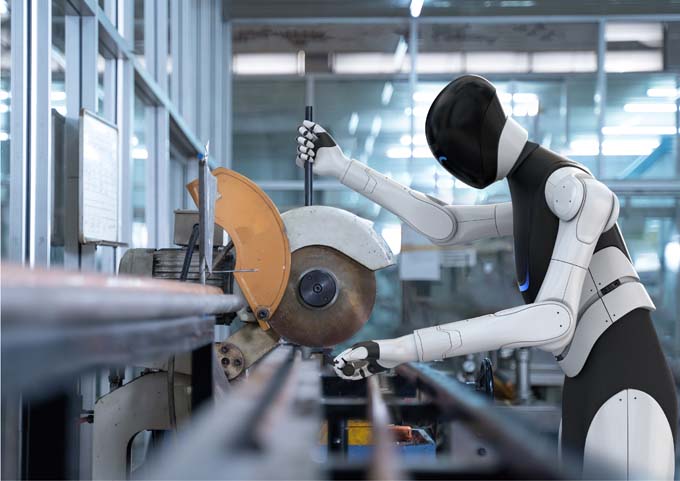New research area at PSI points to the future of data
The Paul Scherrer Institute is founding a new research area "Computational Science, Theory and Data" in collaboration with the EPF Lausanne EPFL.

The Paul Scherrer Institute PSI is officially expanding its own focus areas and establishing a new research area "Computational Science, Theory and Data". Here researchers will increasingly focus on the development of new computer and data technology and its use for science. The research area is the sixth to be added to the existing five areas of "Biology and Chemistry", "Research with Neutrons and Muons", "Nuclear Energy and Safety", "Energy and Environment" and "Photon Research".
"Computational science and the use of high-performance computers are anything but new at PSI," Director Christian Rüegg explains. "However, we are now giving them an appropriate foundation in our organisation and thus the opportunity to pick up on important developments in these future topics even better and to work on them more intensively. We will expand data science, the simulation of materials and the field of artificial intelligence together with strong partners in the ETH Domain."
Extensive computer simulations, modeling, and theoretical calculations are an essential building block of science and engineering. In order to constantly achieve new scientific advances, data science must also evolve. This is all the more true at PSI, with its globally unique ensemble of large-scale research facilities. Both their operation and the experiments that take place here produce large amounts of data: Currently, around 3.6 petabytes (i.e. 3.6 quadrillion bytes) of research data are generated annually at the PSI; in the next four years, and also due to the current upgrade of the Swiss Synchrotron Light Source SLS, this figure could rise to as much as 50 petabytes.
Networked in the ETH Domain
The new research area will be made up of both existing units and new units to be established at EPFL and PSI. It will be closely networked within the ETH Domain. It will include several new joint professorships with EPFL. "We are looking forward to the further strengthened collaboration with PSI that this will bring," says Martin Vetterli, President of EPFL. "Our institutions are hereby acting jointly and with foresight with a thoroughly visionary networking of data processing and data sciences with the unique large-scale research facilities of the PSI."
The units already existing at PSI that will be combined in the new research area include, for example, the Laboratory for Simulation and Modelling and the third location of the "Swiss Data Science Center" at PSI, which complements the two existing locations at EPFL and ETH Zurich.
A particularly close collaboration is planned with the National Centre of Competence in Research MARVEL. MARVEL stands for "Materials' Revolution: Computational Design and Discovery of Novel Materials" and is led by Nicola Marzari, Professor at EPFL and Head of the Laboratory for Theory and Simulation of Materials there. "This collaboration will allow us to further strengthen Switzerland's international leadership in many cutting-edge fields - including materials science, energy research, chemistry and biology - by directly linking simulations of materials and molecules to the results of PSI's large-scale research facilities," Marzari emphasizes. He will help set up and head a laboratory within the new research area.
High-performance computers for the digitized research of the future
It is clear that enormous computing capacities are needed for the ambitious project. In this respect, too, the institutions of the ETH Domain can build on previous experience and continue to rely on the national high-performance computing centre in Lugano, the "Centro Svizzero di Calcolo Scientifico" (CSCS) of ETH Zurich. In the foreseeable future, the "Quantum Computing Hub", which was jointly founded by PSI and ETH Zurich this spring, should also provide hardware for innovative computing.
"High-performance computers with flexible architecture are crucial for extracting the maximum amount of new scientific knowledge from the rapidly growing data volumes of modern research," Rüegg is convinced.
"We are looking forward to new opportunities in research that will bring us large-scale simulations and the further development of artificial intelligence," Rüegg continues. "This is an area in which the ETH Domain is already very strong, and we want to continue this. Overall, the new research area will help to expand and secure Switzerland's international competitiveness."









